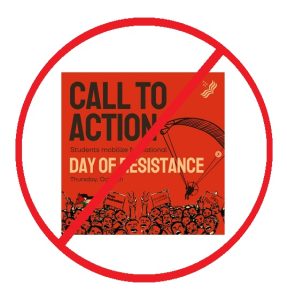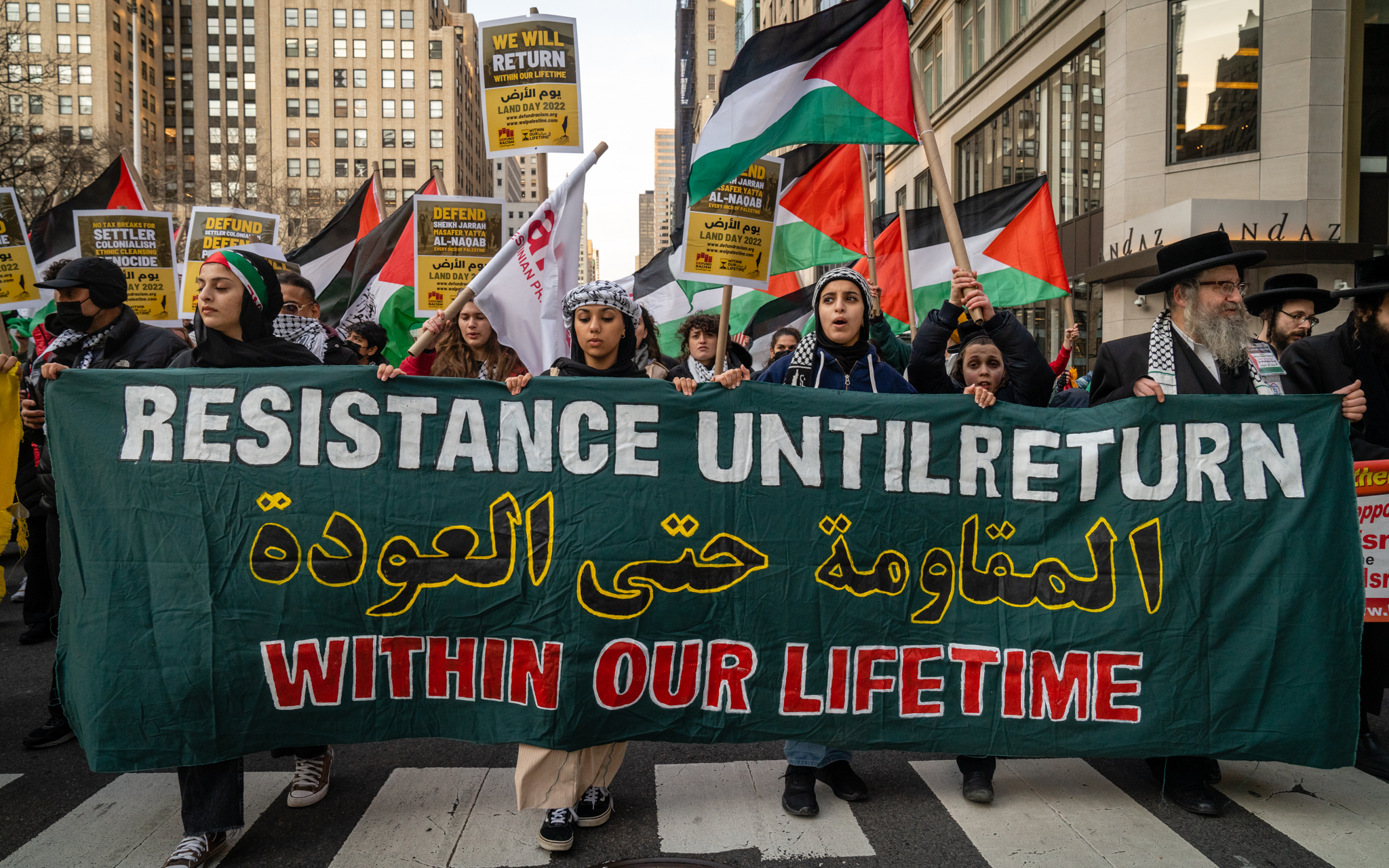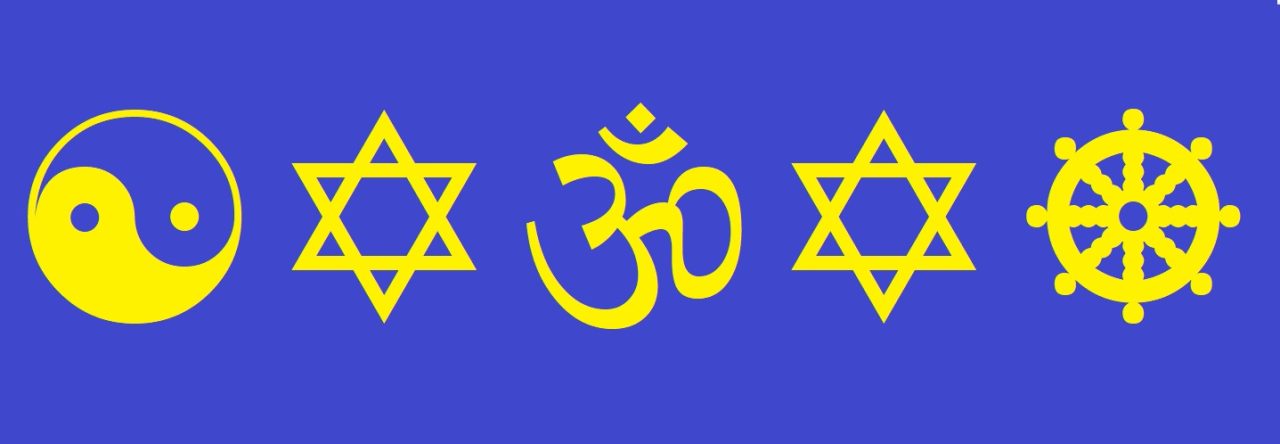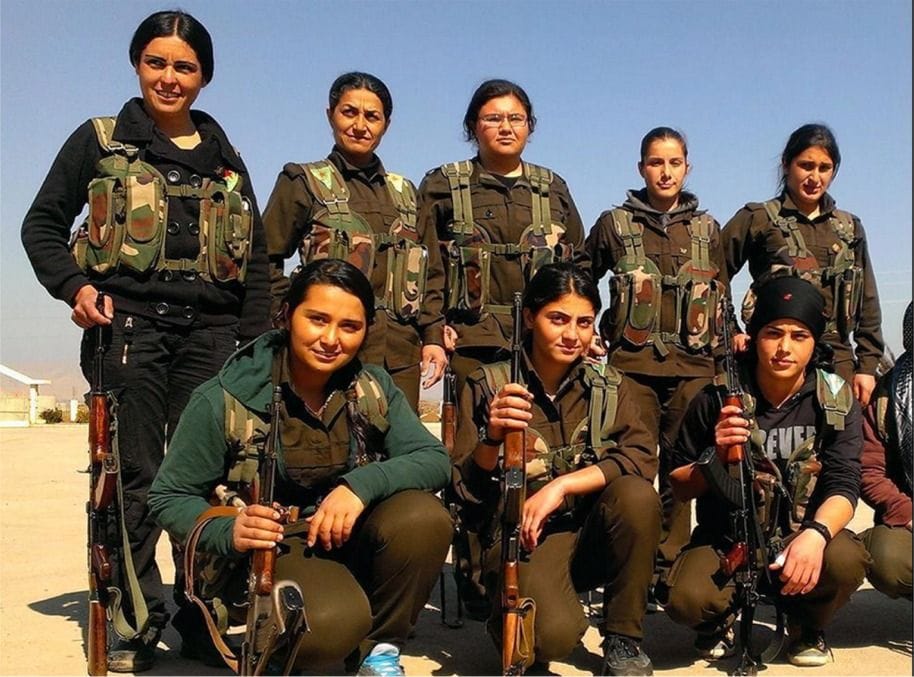 Three weeks after the October 7 terrorist attack on Israel, Palestinian artist and film-maker Jumana Manna wrote about how she and other Palestinians had first reacted to the news of October 7th, and how, at least for her, that reaction quickly changed.
Three weeks after the October 7 terrorist attack on Israel, Palestinian artist and film-maker Jumana Manna wrote about how she and other Palestinians had first reacted to the news of October 7th, and how, at least for her, that reaction quickly changed.
In her article (The Embargo on Empathy), she wrote:
Upon hearing early news that Hamas militants breached the barrier surrounding the Gaza Strip, I shared a few stories on my Instagram page. One of the stories in question was a photo reel showing the scene of a rave celebrating “peace and love” a mere three miles from the highly militarized concrete walls imprisoning Gaza. More than two million people, mostly refugees, sequestered inside these walls and under siege since at least 2007, are forced to live in an open-air prison that subjects them to conditions that violate international law.
Seeing these borders momentarily torn down and flown over, many Palestinians were moved by the stubborn and creative will to break free from captivity. Images of the parachute gliders appeared in our feeds alongside a tractor destroying the apartheid wall. Palestinian teenagers filmed themselves riding out on bikes and horses onto the lands from which their families were ethnically cleansed in 1948. We hoped this moment of fugitivity might restore the potential for life, liberation, and dignity for all in this wretched land, for this nightmarish fantasy of one-sided normalcy to end. These feelings were necessarily short-lived. We continue to watch in horror, along with the rest of the world.
At the time I shared my stories on Instagram, it had not become apparent that hundreds had been deliberately shot and kidnapped. I regretted my own comments after the news revealed the extent of the violence. To those who I am in solidarity with, Jewish, Arab, or otherwise: I neither sanction nor celebrate the murder of civilians and do not trivialize pain and grief.
What Jumana Manna has to say is quite important, because it provides a somewhat plausible explanation for how people could have initially celebrated what happened on October 7 before they knew the truth about the mass slaughter, rapes, and kidnappings on that day.
Jumana Manna’s article was referenced four and half months later in an article written by Mohammed El-Kurd titled “Are we indeed Palestinians?“, in which he wrote:
Since October 7, many public figures, many of them Palestinian, especially in the West, have reconsidered—even renounced—the catharsis they felt upon viewing the images of “Palestinian bulldozers” demolishing parts of the Israeli fence encircling Gaza. Many have regretted celebrating the paragliders escaping their concentration camp. (I put “Palestinian bulldozers” in quotes because it is an unbelievable phrase.)
“It had not [yet] become apparent that hundreds had been deliberately shot and kidnapped,” one artist wrote. It is hard to believe that anyone thought that the spectacular imagery of October 7 (capturing military tanks then dancing atop them) had happened without bloodshed. You begin to wonder whether those latent apologies were calculated business moves.
The Western world, with its prominent cultural and academic institutions, rejected Gaza’s upheaval against the siege, and it demanded that our intelligentsia act accordingly. We were commanded to uphold the status quo (a status quo many of us have built our careers critiquing discursively) in order to maintain our positions, our access, our reputations as the “good ones.”
Submission to the colonial logic that vilifies the violence of the oppressed and turns a blind eye to the oppressor’s violence became the price of admission. Some paid it without hesitation, others struggled as they did it.
In the above, El-Kurd is explicitly defending the actions of Hamas on October 7, and also explicitly criticizing those who initially supported Hamas’ actions only to have later “reconsidered—even renounced” that initial support. El-Kurd quotes directly from Manna’s November 1, 2023, article, although he does not name her.
There can be no mistaking the central point of Mohammed El-Kurd’s article: you cannot consider yourself a true supporter of the Palestinian cause unless you fully and publicly support what Hamas did on October 7.
On Instagram, The Palestinian Youth Movement posted a long quote from Mohammed El-Kurd’s article and a link to the full article. That post has since received over 32,000 “likes”. One of those likes was by Anna Carlson-Ziegler, who until yesterday was the campaign manager for Emily Randall, who is in a high profile neck-and-neck primary contest to be the Democratic nominee for the state of Washington’s 6th congressional seat.
So how does someone who has a good chance (perhaps less of a chance now, though) of becoming a member of the United States’ Congress end up hiring a public supporter of Hamas to be their campaign manager? As uncomfortable as that question is, the answer is even more uncomfortable. From its beginning, even before the founding of the state of Israel, the “pro-Palestinian” movement has always been concerned with only one thing: opposition to the very existence of the Jewish state of Israel by any means necessary.
In 1947 the Arabs of Palestine had a chance for their own sovereign state. United Nations resolution 181 would have created an Arab Palestinian state on 4,500 square miles of land, over twice the size of the Gaza strip and the West Bank combined. But the Arabs rejected that partition. Their rejection was not based on a difference of opinion over who got how much land or where the lines should be drawn. The Arab rejection of the 1947 “two-state solution” was based on an absolute opposition to the very idea of a Jewish state.
And so there was war in 1947 instead of peace, because that is what the Arabs of Palestine chose (the Jews of Palestine enthusiastically supported the partition plan). But it wasn’t just a war between the 600,000 Jews of Palestine and the 1.2 million Arabs of Palestine. It was a war between the 600,000 Jews of Palestine and the nearly 40 million Arabs of Egypt, Syria, Iraq, Saudi Arabia, Yemen, Lebanon, and Jordan, who all sent their armies to desperately try to prevent the creation of a Jewish state.
Without any support from the United States (or Great Britain, or any other major Western power), the Jews of Palestine withstood the attack from all sides by armies that vastly outnumbered them, and in the process they became the citizens of a new nation, Israel. This success of the Zionists has proven a hard reality for Arabs to accept, to this day. Even those who claim to recoil at the atrocities committed by Hamas on October 7, like Jumana Manna, nevertheless share the same dream as those who enthusiastically embrace those same atrocities as the very “means” that are “necessary”. Their dream is that of “return”, a return to how things were before 1948, when Israel officially declared it’s independent existence. They dream of a return to a world with no Israel.
The absolute rejection of the very idea of a Jewish state was the sole guiding principle upon which the Palestinian “cause” was founded. Pro-Palestinian activists have managed to rebrand the founding of the state of Israel, which was a humiliating cataclysm for them, as a badge of honor, the so-called “Nakba”. And this Nakba, in turn, is now widely perceived as the single greatest crime against humanity since the Third Reich. And if the founding of the state of Israel really was such a monstrous injustice, then that injustice will stand so long as Israel exists.
The violent destruction of the state of Israel is the quiet part that many pro-Palestinian activists prefer to leave unsaid. Some, like Jumana Manna, will demur when it comes to defending the “means”, but there is no disagreement over the “end”. But the argument put forward by Mohammed El-Kurd in defense of the atrocities of October 7 is really quite a good one: how else did you think this would be done?
I mean, seriously, what exactly did Jumana Manna suppose that Hamas militants would do once they broke through “the highly militarized concrete walls imprisoning Gaza” or once they landed their “parachute gliders”?
[For more on the case of Emily Randall’s pro-Hamas campaign manager, see the article Washington congressional candidate fires campaign manager over pro-Hamas social media activity by Marc Rod, writing for Jewishinsider.com. And on the same day that Emily Randall had to fire her campaign manager, a group of 150 “pro-Palestinian protesters” descended on Adas Torah synagogue, situated in the most densely populated Jewish community in Los Angeles, while chanting “There is only one solution, intifada revolution!” See more in this article at the Times of Israel: Violent clashes erupt between pro- and anti-Israel protesters outside LA synagogue.]

‘Intifada until victory’: Pro-Palestinian demonstrators rally in New York https://www.timesofisrael.com/intifada-until-victory-pro-palestinian-demonstrators-rally-in-new-york/



 The Tikvah Fund is offering a free online course taught by Einat Wilf: “Zionism and Anti-Zionism: The History of Two Opposing Ideas A new online course with Dr. Einat Wilf and Zoé Tara Zeigherman”.
The Tikvah Fund is offering a free online course taught by Einat Wilf: “Zionism and Anti-Zionism: The History of Two Opposing Ideas A new online course with Dr. Einat Wilf and Zoé Tara Zeigherman”.



